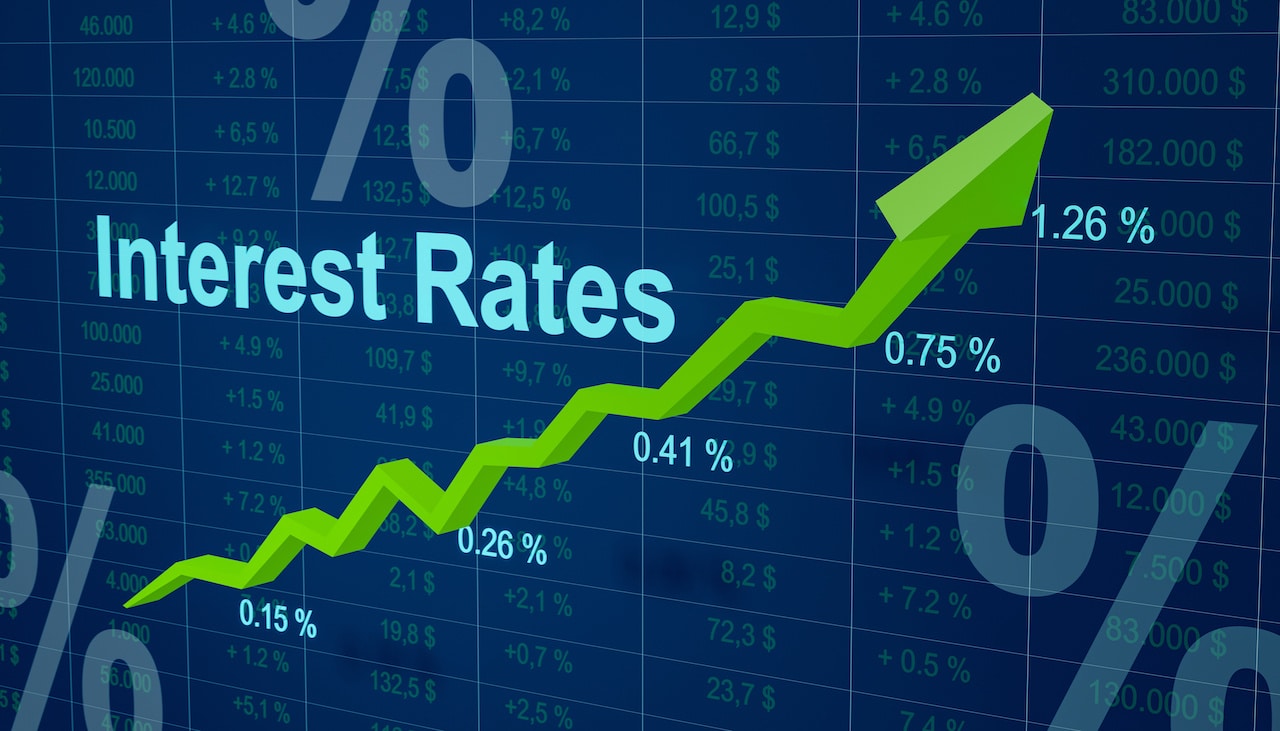Credit Sesame’s personal finance news roundup February 10, 2024. Stories, news, politics and events impacting personal finance during the past week.
- Consumer debt hits new record
- Lending standards continue to tighten
- Fed Chair calls government deficits “unsustainable”
- Mastercard plans to use artificial intelligence to spot credit card fraud
- Most Americans feel tipping requests have gone too far
- New York prepares for new rule on credit card surcharges
- Younger, lower credit score borrowers lead credit card debt growth
- Banks lost deposits in 2023 despite rising yields
Consumer debt hits new record
Total consumer debt rose to an all-time high of $17.5 trillion in the fourth quarter of 2023. $12.25 trillion of that is mortgage debt. Auto loan debt surpassed student loan debt as the most prevalent form of non-mortgage consumer debt, rising to just over $1.6 trillion. However, the fastest-growing type of consumer debt is credit card debt. Credit card balances grew by 14.5% in 2023 to reach $1.129 trillion. It was the second consecutive year that credit card debt grew by double digits. Along with rising balances, delinquency rates have been heading upward. Overall, the percentage of balances that fell behind by 90 days or more rose from 1.03% to 1.42% last year. Credit card balances led the way with a 6.36% new delinquency rate, up from 4.01% at the end of 2022. Young adults have the highest overall rate of new delinquencies, and among young adults, new delinquencies on credit card debt surpassed their pre-pandemic level. See details at NewYorkFed.org.
Lending standards continue to tighten
A Federal Reserve survey of senior loan officers found that banks continue to impose tougher lending standards in the fourth quarter of 2023. Lenders tightened standards on all forms of household debt other than government mortgages. For the year ahead, lenders expect standards to get even tougher for credit cards and auto loans. Tighter lending standards include lower credit limits, higher minimum payments, wider interest rate spreads, higher credit score requirements, and fewer exceptions for applicants who don’t meet credit score thresholds. See details at FederalReserve.gov.
Fed Chair calls government deficits “unsustainable”
Federal Reserve Chair Jerome Powell characterized government deficits’ current level and growth as “unsustainable.” While acknowledging that the Fed typically refrains from commenting on government fiscal policy, he warned that it was time to “get back to an adult conversation among elected officials about getting the federal government on a sustainable fiscal path.” Powell’s comments echoed those of JP Morgan Chase CEO Jamie Dimon, who said that at its current pace, the federal government was fast approaching when foreign holders of U.S. government bonds would start refusing to buy those bonds. See article at Yahoo.com.
Mastercard plans to use artificial intelligence to spot credit card fraud
Mastercard is working on a tool that will use artificial intelligence to scan over 1 trillion data points in its attempt to detect fraudulent transactions. The tool is expected to become available later this year. On average, tests have found that the tool increases Mastercard’s fraud detection rates by 20%. Another benefit is that the tool reduced false positive readings by 85%. That means fewer legitimate transactions will be flagged for potential fraud. See article at Fintech.Global.
Most Americans feel tipping requests have gone too far
A USA Today survey found that 63% of Americans think that too many places are asking for tips. Overall, people report leaving an average of 18% as a tip. The survey found that tipping behavior varies greatly by location but not so much by age or sex. People in California are the most generous tippers, leaving an average gratuity of 22.69%. In contrast, residents of Illinois are the most tight-fisted, leaving an average tip of 14.22%. Tipping behavior by age group was generally reasonably close to the national average, except among respondents aged 78 or older. The survey’s oldest age group reported tipping an average of 15.16%. Male respondents said they tipped an average of 19%, while the average for females was 17%. See article at USAToday.com.
New York prepares for new rule on credit card surcharges
A new law in New York State governing fees businesses charge consumers for paying with a credit card goes into effect on February 11. Before the law’s launch, New York Governor Kathy Hochul announced specific requirements under this regulation. One is that businesses cannot charge more of a surcharge than the amount charged to the business by the credit card company. Also, businesses must post the total cost of each item before checkout. See news release at Governor.NY.gov.
Younger, lower credit score borrowers lead credit card debt growth
A new analysis from credit bureau TransUnion revealed some of the trends behind the growth in credit card balances. Balances increased across all debt tiers but grew especially fast among subprime borrowers last year. Subprime credit card balances grew by 32% in 2023. By age group, members of Generation X have the greatest share of overall credit card debt, at 33.8%. For the first time last year, millennial borrowers held a greater share of credit card debt than baby boomers. Millennial borrowers’ share of total credit card debt rose by 1.1% last year to 29.4%. At the same time, the share held by baby boomers fell by 1.7% to 26.7%. See report at TransUnion.com.
Banks lost deposits in 2023 despite rising yields
Even though rising yields should have made deposit accounts more attractive last year, banks experienced a net loss of deposits in 2023. One reason is likely that the yield on money market funds rose faster than that of bank deposit accounts. Over time, bank deposit account yields have been similar to those of money market funds, with deposit accounts sometimes offering better yields while, at other times, money market funds took the lead. Last year, though, money market yields rose much faster than deposit account yields, most recently rising to more than 2% above deposit account yields. This repeats a pattern of previous cycles when money market funds have tended to react faster to rising interest rate environments. See report at KansasCityFed.org.
Weekly News Headlines from Credit Sesame




















